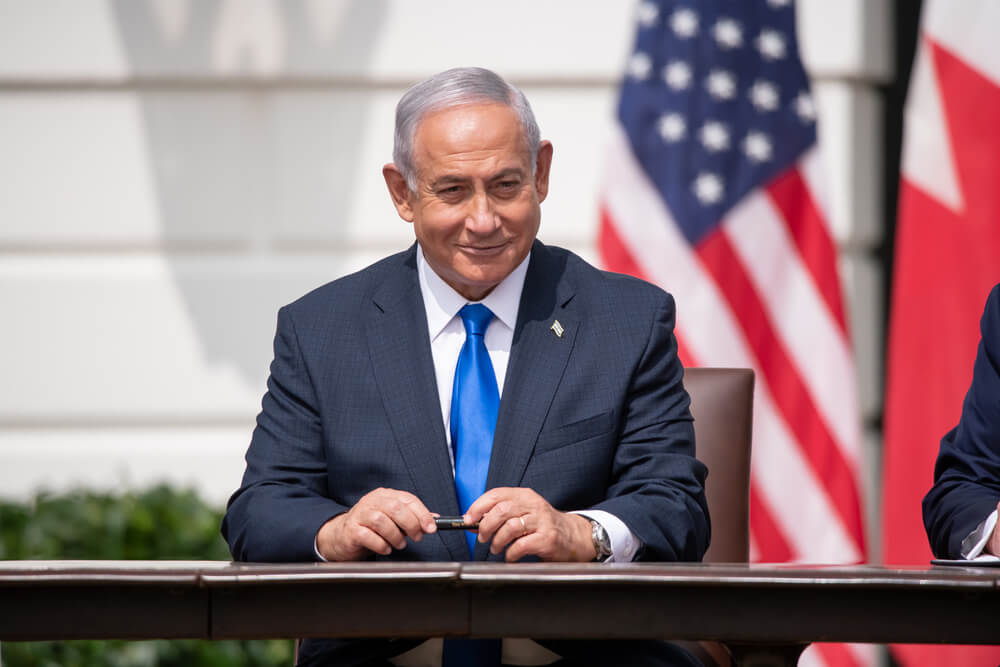A plan for a three-week truce between Israel and Hezbollah, presented by US and French leaders Joe Biden and Emmanuel Macron, looks set to take off, despite Israel's initial pushback.
A hurried and extensive diplomatic operation produced a plan that would see Israel and Hezbollah suspend hostilities for 21 days to allow for a comprehensive agreement on the return of displaced people on both sides of the Israeli-Lebanese border.
“It is time for a settlement on the Israel-Lebanon border that ensures safety and security to enable civilians to return to their homes. The exchange of fire since October 7th, and in particular over the past two weeks, threatens a much broader conflict, and harm to civilians,” writes the joint statement of presidents Biden and Macron.
They have gathered influential co-signatories, including the closest European allies, but also regional partners such as Saudi Arabia, Qatar and the UAE. The composition of the coalition itself puts strong pressure on both Israel and Lebanon to take the proposal very seriously.
Truce as soon as possible
The plan of Israel's main Western partners, as well as important regional Arab players, requires rapid acceptance. The initiative comes at a time when Israel announces its readiness for a ground intervention inside Lebanon's territory to deal with Hezbollah forces.
Also, it comes after fierce Israeli missile attacks on Hezbollah positions, as well as the incapacitation of several thousand Hezbollah operatives in the simultaneous explosion of their pagers.
"The news about a cease-fire—not true" - the office of PM Benjamin Netanyahu
"The news about a cease-fire—not true. This is an American-French proposal, to which the prime minister did not even respond,” announced the office of PM Benjamin Netanyahu on the occasion of the publication of the joint statement of Presidents Biden and Macron.
But it happened at a time when PM Netanyahu was travelling to New York, where he will participate in a debate at the UN General Assembly on Friday and, more importantly, in numerous meetings, most of which will regard the three-week truce with Hezbollah.
Internal resistances
Israel has valid reasons to say no. Initially, from a military perspective. The idea is to establish a truce as soon as possible, which would stop the military momentum of Israeli forces against Hezbollah, given that heavy strikes on their positions in the past few days have seriously shaken the ability of pro-Iranian extremists to attack Israel.
Moreover, the main reason for the initial rejection of the truce plan is Israel's caution that stopping the destruction of Hezbollah's potential would allow the enemy to recover as much as possible, reorganise, and soon attack northern Israel again.
Netanyahu's initial resistance to the truce proposal was also a result of internal pressures within Israel itself
Netanyahu's initial resistance to the truce proposal was also a result of internal pressures within Israel itself.
One of his far-right government partners, national security minister Itamar Ben Gvir, threatened on Thursday that he would withdraw his party from the government if Netanyahu accepted a ceasefire in Lebanon.
Regional political leaders in the threatened north of Israel are also resisting the truce, convinced that it will bring a "new October 7" if the Hezbollah forces are not defeated militarily.
“This is a time for war”, said Amir Sofer, the Upper Galilee Regional Council’s chairman.
When it comes to the Israeli political establishment, the rejection of the ceasefire initiative in Lebanon is almost consensual. However, some opposition leaders see only technical, not fundamental, shortcomings in it.
Yair Lapid, a former centrist prime minister and current opposition leader, finds the American-French proposal acceptable, but only if it extends not for 21 days but 7 days.
The opposition Democrats' leader and former Deputy Chief of Staff, General Yair Golan, who advocates that the truce last for three days, not three weeks, thinks similarly.
Room for compromise
It is precisely in this direction, i.e., shortening the time frame for the truce, that it is possible to look for space for PM Netanyahu's agreement to the plan during his talks in New York with the promoters of the plan.
It is unfavourable for him that the proposal for a truce in Lebanon calls for a break during which peace negotiations in Gaza would be reactivated, because Israel does not want the two fronts on which it is fighting to be connected in any way.
 Benjamin Netanyahu will face a very determined front of partners who will insist on de-escalation first in Lebanon and indirectly in Gaza
Benjamin Netanyahu will face a very determined front of partners who will insist on de-escalation first in Lebanon and indirectly in Gaza
However, Netanyahu will face a very determined front of partners who will insist on de-escalation first in Lebanon and indirectly in Gaza.
The motive of the Western allies to secure a truce between Israel and Hezbollah as soon as possible is primarily to stop a major escalation. But their goal is, without a doubt, to achieve an important diplomatic breakthrough towards calming the conflict on the eve of the anniversary of the terrorist attacks by Hamas on Israel.
Benjamin Netanyahu will therefore be under enormous pressure during his stay in the US to accept the weakening of the conflict and enter the negotiation period, step by step. But, at the same time, he will see it as an opportunity to seek concessions with which he could ensure security for his political position at home.